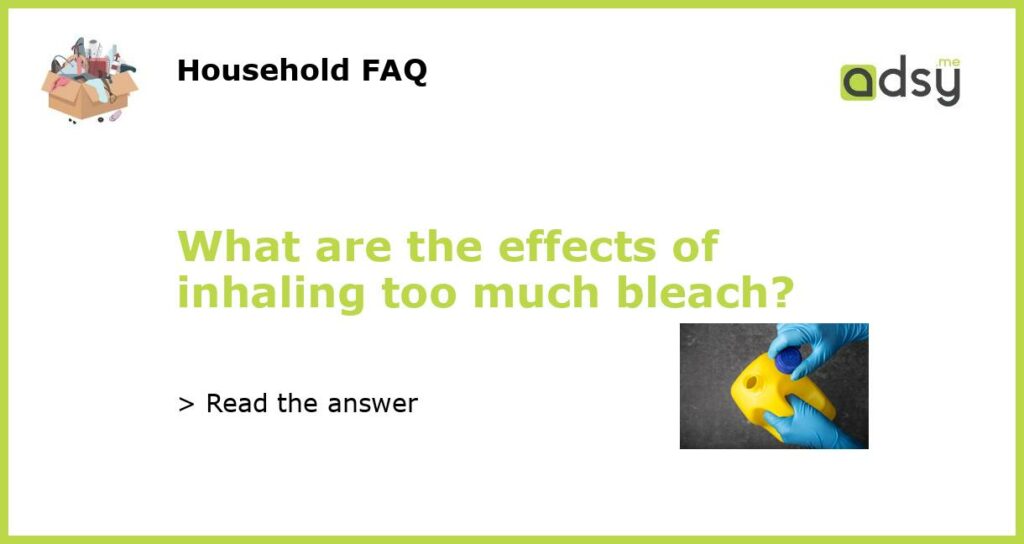Understanding the harmful effects of inhaling bleach
Bleach is a powerful disinfectant that is widely used for cleaning and sanitation purposes. However, inhaling bleach fumes can be harmful to your health, causing respiratory problems, skin irritation, and other health issues. While the concentration of bleach and the duration of exposure affects the severity of the effects, it is essential to understand the potential risks of inhaling bleach and how to mitigate them.
What happens when you inhale bleach fumes?
Inhaling bleach fumes can lead to several health problems, including respiratory issues, such as coughing, wheezing, and shortness of breath. It can also cause inflammation of the throat and lungs, leading to irritation, burning sensation, and difficulty breathing. Prolonged exposure to bleach fumes can even result in severe respiratory conditions, such as asthma and bronchitis. Bleach fumes can also irritate the skin and mucous membranes, causing redness, itching, and swelling.
What factors influence the severity of the effects?
The concentration of bleach and the duration of exposure are the primary factors that influence the severity of the effects of inhaling bleach. The higher the concentration of bleach, the stronger the fumes, and the more severe the symptoms. Similarly, prolonged exposure can cause more significant damage to the respiratory system and other organs. Other factors that may affect the severity of the effects include pre-existing medical conditions, such as allergies and respiratory diseases, age, gender, and overall health status.
How to mitigate the risks of inhaling bleach?
To mitigate the risks of inhaling bleach, it is essential to follow the proper safety precautions when using the disinfectant. Always use bleach in a well-ventilated area, open windows and doors to increase airflow, and wear protective gear, such as gloves and masks, to prevent direct exposure to fumes. Avoid mixing bleach with other cleaning products, such as ammonia, as it can produce toxic gases that can be extremely harmful if inhaled. If you experience any symptoms of respiratory distress after inhaling bleach, seek medical attention immediately.
Be cautious when dealing with bleach
Bleach is a useful disinfectant that can help keep your home clean and safe, but inhaling bleach fumes can be hazardous to your health. By understanding the potential risks and taking the necessary precautions, you can safely use bleach without harming yourself and others. Remember to always follow the instructions on the product label, and if you have any doubts, consult a professional or seek medical advice.






